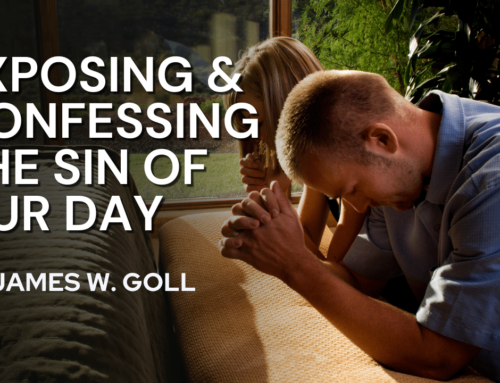Sensitive by Nature
We prophetic people come in all shapes and sizes, and our upbringing and personal experiences vary widely. But in my view, many of us tend to be more sensitive by nature, which may make us better prophets, but which may also make any form of rejection more painful.
 What do I mean by rejection? Part of rejection is not feeling understood or valued and therefore being unwanted. Rejection makes you feel excluded, not part of the group, as if you are on the outside looking in. You so much want people to love you, and you are dismayed repeatedly when they do not even seem to care.
What do I mean by rejection? Part of rejection is not feeling understood or valued and therefore being unwanted. Rejection makes you feel excluded, not part of the group, as if you are on the outside looking in. You so much want people to love you, and you are dismayed repeatedly when they do not even seem to care.
In my own family growing up, I suffered much verbal abuse from my father. God made it right at the end of his life, but in the meantime, I had to learn how to walk in forgiveness and how to conduct myself as a son to God as my perfect Father. I had to learn not to fear retribution. My heavenly Father loves me simply because He had made me. I am His; He said my name was inscribed on the palms of His hands (see Isaiah 49:15-16). This is true for you, as well.
God’s healing touch manifested itself over time, sometimes in dramatic ways and sometimes through my concerted effort to establish His truth in my heart. I learned (and I’m still learning) how to trust Him all the way, all the time.
Rejection: Signs and Causes
It is accurate to say that we prophets seem to be very good at arousing rejection. Some of this would happen even if our presentation of God’s word were perfect, yet we can learn from experience how to provoke less of it.
To start with, we must allow God’s light to expose our hearts. Prophets, easily hurt and anticipating further negative responses, may become reclusive and withdrawn—or the opposite, defensively assertive. With feelings that are easily hurt, the prophet may see injury where none was intended; he or she may take too many remarks or criticisms personally or expect to be overlooked. The prophet may come across as grumpy, argumentative, opinionated, quick to debate a point. A prophet who feels rejected may start to act self-important. He or she may require a special invitation to participate in something, and once there may demand to be the center of attention.
In other words, anticipating rejection, prophets too often over-compensate—thus incurring still more rejection. It is not hard to see why. Other people cannot be expected to react well to someone who aggravates them, especially when it happens in a repeated way.
Rejection, real or imagined, always involves two parties: the “rejector” and the “rejectee.” Both prophets and leaders—and perhaps particular prophets who are leaders—need to work through their unresolved personality issues in an intentional, ongoing way, with the ever-present help of the Holy Spirit.
Cures for the Rejection Syndrome
In short, no birth is ever clean and tidy. And that includes the birthing of the prophetic in a church body. Prophets may well be quite different from non-prophets, and others, leaders in particular, may find it quite challenging to accept the “package” of the prophetic gift in their midst. But prophets do not help the situation when they project an over-developed spirituality or act as if they are intellectually superior somehow.
Senior leaders are responsible though for teaching the whole congregation about prophetic matters. This will not only help the word of the Lord to take root as it should, but it will prevent people from either over-exalting prophets in their midst—or turning against them and even crucifying them. Love, patience and forgiveness all around are always in order.
The relationship between the leadership and a prophetic minister must grow in security and maturity. Such relationships require much attentive nurture in order to remain healthy and avoid pitfalls. It only works when all parties seek God consistently and passionately. Love must prevail!
Be Part of a Church
 Prophets must operate in the context of the Body of Christ here on earth; no prophet—even the ones with the most amazing giftedness—can function well for very long in isolation. Some try. They may have been shut out of their local church or muzzled in some way, so they go off and collect other wounded prophetic groupies and try to present prophetic words to anyone who will listen. However, by exempting themselves from the governmental oversight of the Church, they run a big risk of running off the road.
Prophets must operate in the context of the Body of Christ here on earth; no prophet—even the ones with the most amazing giftedness—can function well for very long in isolation. Some try. They may have been shut out of their local church or muzzled in some way, so they go off and collect other wounded prophetic groupies and try to present prophetic words to anyone who will listen. However, by exempting themselves from the governmental oversight of the Church, they run a big risk of running off the road.
Without governmental oversight, prophets can easily fall into the trap of “everyone doing what is right in their own eyes” (see Judges 21:25). This creates a situation in which there is no “wineskin” to receive revelation. There may be a lot of wine, but the receptacle is missing. It is the flip side of what happens in a church that lacks prophetic revelation. Then there is a wineskin all right, but very little new wine, as people become institutionalized and new life ebbs away.
As someone who has more than forty-five years of experience of functioning prophetically in church ministry settings around the world, I appeal to everyone in the Body of Christ to make every effort to function fully as part of a body with all its parts.
Acceptance Instead of Rejection
As a prophetic person, each of us needs to be like a rhinoceros—thick-skinned but with a big, sensitive heart. For too long I have been thin-skinned with a big heart. I have learned the hard way about feeling rejected because of my prophetic sensibilities and the primary lesson I have learned is that my flow of revelation will slow to a trickle if I do not get up when I have been knocked down. I have learned that I always need the main and plain truth of the Gospel more than I may think. The way of the cross leads home, and through Jesus we each have a personal place of belonging.
The truth is that Jesus was punished for our sin that we might be forgiven (see Isaiah 53:9-12). He was wounded for our sicknesses that we might be healed. “By his wounds we are healed” (Isaiah 53:5, NIV). He became poor for our sakes that we might have His wealth. Our Lord died that we might have His life. We have been accepted, adopted, and cared for. God does not only tolerate us, He fully embraces and loves us (see Ephesians 1:5-6; 3:14-15; John 1:12-13). After all, He created us. He always has time for each and every one of us.
 Accept the fact that you are fully accepted in Christ. Lay down your bitterness and forgive those who have rejected you. Instead of returning evil for evil or withdrawing to lick your wounds, sow a blessing. Search out Scriptures that reinforce the fact that you are accepted in Christ, loved with an everlasting love that does not depend upon your performance.
Accept the fact that you are fully accepted in Christ. Lay down your bitterness and forgive those who have rejected you. Instead of returning evil for evil or withdrawing to lick your wounds, sow a blessing. Search out Scriptures that reinforce the fact that you are accepted in Christ, loved with an everlasting love that does not depend upon your performance.
Accept yourself. Recognize that “We are His workmanship, created in Christ Jesus for good works, which God prepared beforehand so that we would walk in them.” (Ephesians 2:10).
I do not know your journey but with years in the trenches, I do know the pits and pinnacles of the prophetic lifestyle. As we lift up the Lord Jesus Christ, and honor the prophetic word, let’s do our part to contribute to the health of His Church.
Remember, Jesus Himself came among us as a servant. He told us that the greatest among us is to be the servant of all: “He who is greatest among you, let him be as the younger, and he who governs as he who serves” (Luke 22:26, NKJV). For our mutual wellbeing, gifted individuals must seek out others. Teaming up with others is not only biblical, it might just save you from shipwreck! That is why I always say: We are better together.
For the Healing of the Body!
James W. Goll
 If you want to grow in the security of your prophetic gift and learn to walk in healthy, life-giving relationships as a prophet free from rejection, then you’ll love James Goll’s NEW book The Prophet! When you purchase the book you will also receive 12 bonus video devotionals by James W. Goll that correspond with each chapter. Order your copy today and team up with others in the body of Christ to grow in your prophetic gift!
If you want to grow in the security of your prophetic gift and learn to walk in healthy, life-giving relationships as a prophet free from rejection, then you’ll love James Goll’s NEW book The Prophet! When you purchase the book you will also receive 12 bonus video devotionals by James W. Goll that correspond with each chapter. Order your copy today and team up with others in the body of Christ to grow in your prophetic gift!







Leave A Comment
You must be logged in to post a comment.